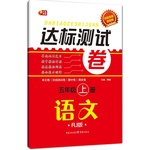题目内容
Nigel received a reward for his excellence in study. It began when he was selected to help the teachers in the computer laboratories.
The peak of his school career came not when he topped the school but when he was selected for the nationwide competition. Unlike everyone else, Nigel wanted to join the contest because he liked making something out of the Lego sets. Nigel spent the next two months rebuilding the robot. It was during the time that Nigel found out about the prizes for the competition as well as another competitor, Alicia, from a neighboring school. His early intentions were forgotten. Getting the thousand-dollar prize was more important than anything else. Nigel decided to befriend Alicia. Unaware of his intentions, she told him all about the robot that she had been building for the competition. He even helped her to put the finishing branches to her robot. He was glad with the way things had progressed. His robot was able to become a ball with its arms, which Alicia had failed to do.
Everything didn’t dawn on her until she saw him among the competition. She stared at him, puzzled at first, then angry and finally a look of helplessness came over her.
The flashbulbs of the camera exploded in Nigel’s try. The robot bird performed actions so unique that the specialist judgments were the same. Nigel was so personal with himself that he did not even notice the girl standing a few feet away from him. Without her, he would never win the competition.
72. Nigel’s original intention of joining the contest was to ___.
A. be the top student of the school
B. constructs a robot with the Lego sets
C. being great honor to his school
D. wins the thousand-dollar prize
73. What reward did Nigel receive for doing well in his school work?
A. He helped in the computer laboratories
B. He was honored with a scholarship
C. He helped his teacher construct a robot
D. He was offered a part-time job
74. Why did Nigel help Alicia finish her robot?
A. He tried to make friends with her
B. He was fond of building robots
C. He intended to help her
D. He didn’t want her to suspect him
75. What is the author’s attitude towards Nigel’s actions?
A. ambiguous B.defensive
C. supportive D. critical
BADD

 芒果教辅达标测试卷系列答案
芒果教辅达标测试卷系列答案